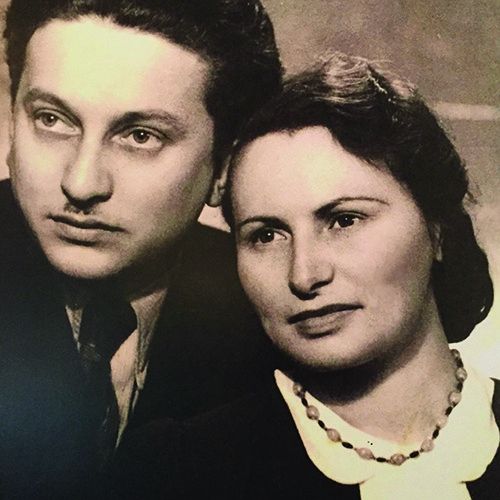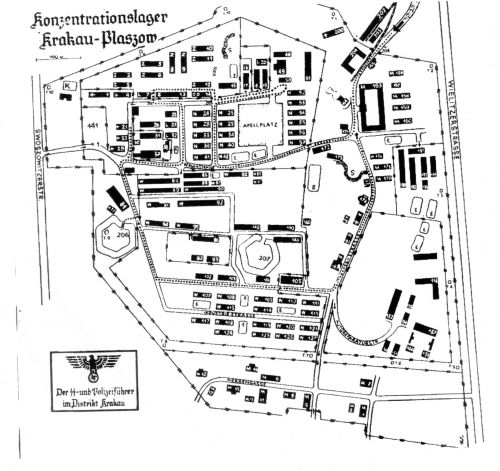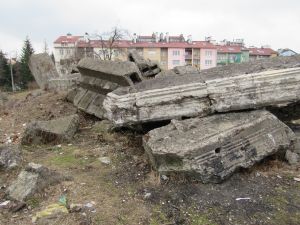Josef Bau

Josef and Rebecca Bau (Private Archive)
Josef Bau was born on June 18, 1920, in Krakow, Poland. After he completed his formal educational training, he continued his studies in 1938, at the Faculty of Plastic Arts in the University of Krakow. The German occupation interrupted his studies, and he was taken from the Krakow ghetto to the Plaszow Labour Camp, which became a concentration camp in September 1944. At Plaszow he was prisoner number 69084, and he worked as a graphic artist in the camps' planning office, where he drew plans, maps and signs in gothic script. An example of his drawing skills is below:

Plaszow - Krakau - KZ Plan Drawn by Josef Bau
Josef Bau met his wife Rebecca in Plaszow. There was no Rabbi, so his mother conducted the marriage ceremony, and two years later they were officially married. His father Abraham Bau was shot by an SS man named Green, for no reason. His mother Cila, was transported to Bergen-Belsen Concentration Camp, after surviving Auschwitz Concentration Camp. She died two weeks after the camp was liberated on April 15, 1945.
Plaszow - Remains of Jewish Cemetery - March 2016 (Chris Webb)
Josef Bau was also incarcerated in Gross Rosen, which he arrived at on October 15, 1944, and from Gross Rosen Concentration Camp he was transferred to Brunnlitz Camp which was run by Oskar Schindler, the former Emalia factory owner, who had saved so many of his Jewish workers. Oskar Schindler recovered Josef Bau's journal, which contained poems and writings about Plaszow, and returned it to Josef Bau in Brunnlitz, although he had never met him before.
When the war ended Bau, was reunited with his wife, and they returned to Krakow, where he took up with his studies again, at the same University of Krakow. In order to support his wife and daughter Hadassah, he worked as a graphic artist in a government office. At the same time he worked at the publishing house 'Komisja Historyczna.' He was also employed as a cartoonist for four newspapers and he taught artistic script at an Art School.
In 1950, Josef Bau and his family emigrated to Israel, and another daughter Cilia was born there. He had a number of works published, including a book titled, 'Dear God, Have You Ever Been Hungry' in 1998. He continued to draw, and he had a number of works published, including poems and drawings, which were often based on his experiences in the camp, and these were very expressive and very poignant.
Josef Bau died on May 24, 2002.
Sources
Holocaust Historical Society
Robin O'Neil, Oskar Schindler: Stepping Stones to Life, susaneking.com, 2010
Photographs: Private Archive, and Tall Trees Archive, UK
© Holocaust Historical Society 2017


